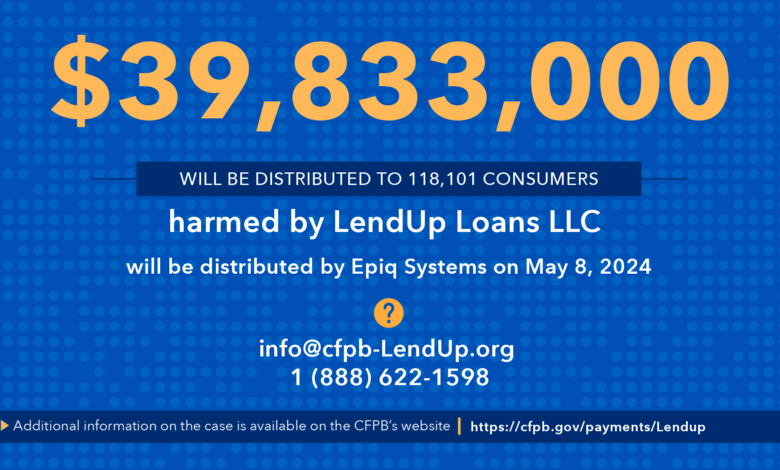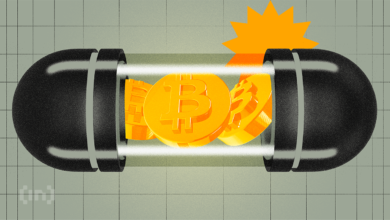CFPB to distribute nearly $40 million to consumers misled by fintech company LendUp Loans

This month, 118,101 consumers who were deceived by LendUp Loans LLC will receive checks in the mail. LendUp Loans, headquartered in Oakland, California, offered single-payment and installment loans to consumers online and marketed itself as an alternative to payday lenders. A central component of LendUp’s marketing and brand identity was the “LendUp Ladder.” The company told consumers that by repaying loans on time and taking free courses through its website, consumers would move up the “LendUp Ladder” and receive lower interest rates on future loans and access to larger loan amounts. Tens of thousands of customers climbed the “LendUp Ladder” and still failed to qualify for larger loan amounts and continued to be offered similar or higher interest rates compared to previous loans.
If you were one of the 118,101 consumers harmed by LendUp’s practices, you will be sent a payment on May 8, 2024, through Epiq Systems. You can learn more about the distribution at cfpb.gov/payments/Lendup. If you have questions about receiving a payment, email info@cfpb-LendUp.org or call 1 (888) 622-1598.
The total distribution amount is $39,833,748.87 and the money will come from the CFPB’s victims relief fund.
Action against LendUp
After multiple enforcement actions against LendUp over the years, LendUp was ordered to stop making new loans. In 2016, the CFPB ordered LendUp to stop misrepresenting the benefits of borrowing from the company, and in 2020 the CFPB sued LendUp for allegedly violating the Military Lending Act. In September 2021, the CFPB filed an action against LendUp alleging that the company deceived consumers about the benefits of repeat borrowing, violated the CFPB’s previous 2016 order, and failed to provide timely and accurate adverse-action notices as required by fair lending laws.
This latest judgement permanently prohibits LendUp from making new loans, collecting on certain outstanding loans to harmed consumers, selling consumer information, and making misrepresentations when servicing loans or collecting debt or helping others who are doing so.



